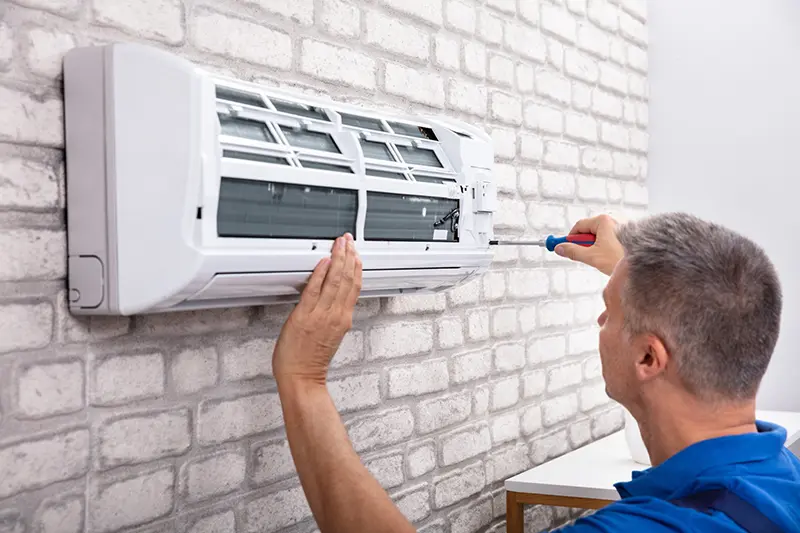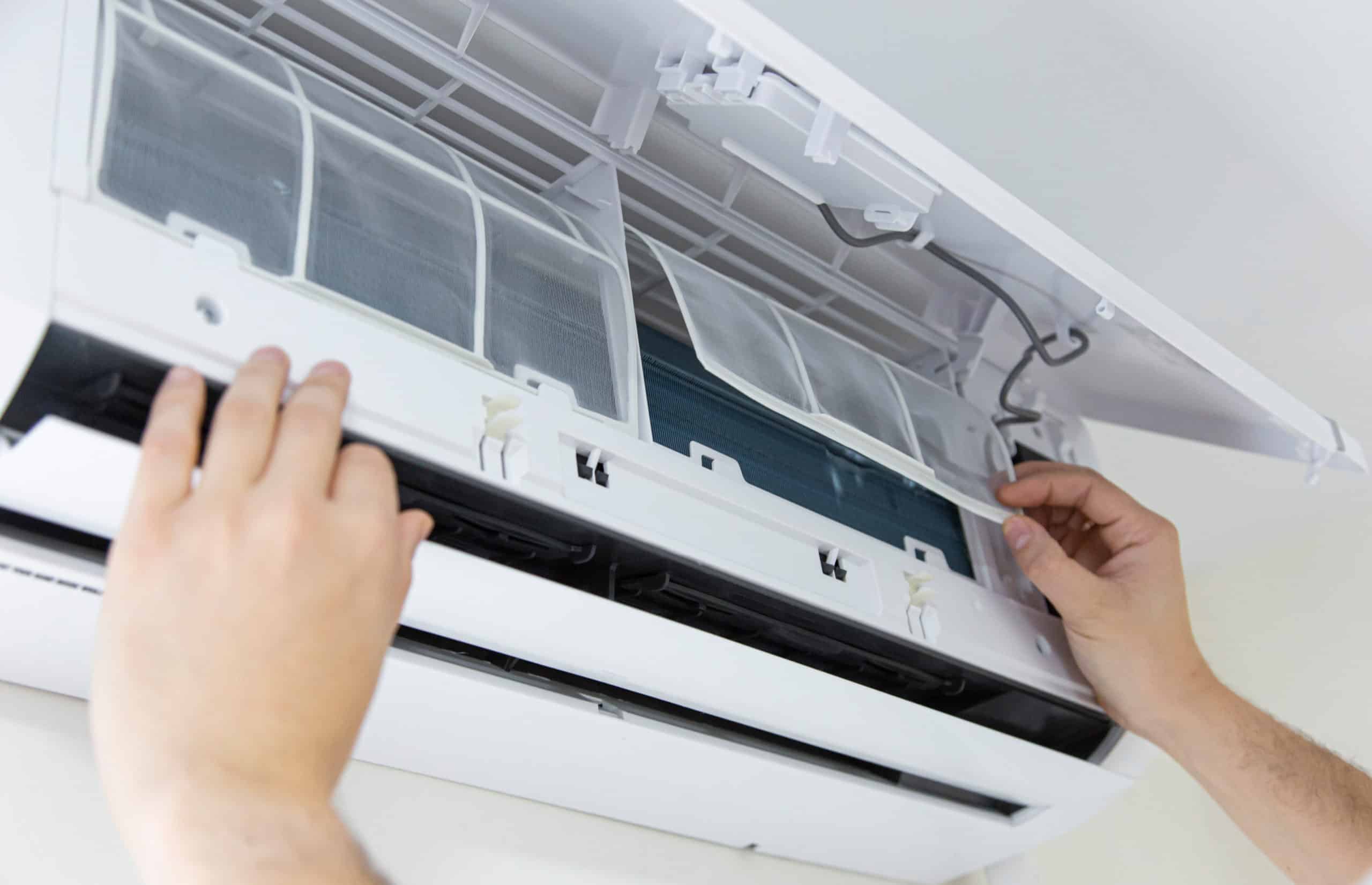Some Ideas on Ac Fixing You Need To Know
Some Ideas on Ac Fixing You Need To Know
Blog Article
The 9-Second Trick For Ac Fixing
Fix Air Conditioner: Specialist Cooling System Repair Guarantees Your Home Stays Comfortable All Year Round
Types of Air Conditioner Systems
When dealing with AC repair work, comprehending the type of cooling system you're dealing with can save time, money, and irritation. Ever questioned why some units cool a space faster than others? Or why specific systems appear to break down more often? Let's peel back the layers.
Central Air Conditioning
The Definitive Guide for Air Conditioning Repair
Think of a cool breeze flowing through an entire house, whispering comfort into every corner. Central air conditioning systems do exactly that. They use a network of ducts to disperse cooled air, depending on a compressor and condenser outside, coupled with an evaporator coil inside. However when this complex monster fails, pinpointing the problem can be like finding a needle in a haystack.
Split Systems

Split systems are a popular option for numerous homes-- part indoor system, part outdoor compressor. They use flexibility and effectiveness, but their dual nature implies repair can involve either element. Have you ever heard an unusual noise outside your house just to discover the indoor unit isn't cooling? That's a classic indication of a split system glitch.
The 4-Minute Rule for Ac Air Conditioner Repair
Window Units
These compact warriors fight summertime heat by fitting comfortably into a window frame. They combine all elements into a single box. Their simplicity frequently suggests fewer repair headaches, but disregarding filters or permitting particles buildup can lead to lessened performance or breakdowns.
Ductless Mini-Splits
The 30-Second Trick For Ac Repair Near Me
Ductless systems bypass ductwork completely, making them perfect for homes without existing ventilation. They're quiet, efficient, and remarkably resilient. When repairs are required, technicians must be proficient at dealing with refrigerant lines and electrical connections-- no small accomplishment.
Quick Reference Table
| Type | Key Features | Common Repair Issues |
|---|---|---|
| Central air conditioning | Ductwork, whole-house cooling | Duct leakages, compressor failure |
| Split System | Indoor & & outside units | Refrigerant leaks, fan motor problems |
| Window Unit | All-in-one, easy installation | Dirty filters, electrical faults |
| Ductless Mini-Split | No ducts, zoned cooling | Line leakages, sensing unit malfunctions |
Ac Air Conditioner Repair Things To Know Before You Get This
Unraveling one of the most Frequent Air Conditioner Issues
Have you ever wondered why your air conditioner all of a sudden stops cooling during a sweltering afternoon? One common offender is a filthy or stopped up air filter. This sly bad guy restricts airflow, requiring your system to work overtime, which not just decreases performance but can also result in early breakdowns. Think of attempting to breathe through a headscarf taken in dust-- it's exhausting!
Another regular misstep is refrigerant leaks. These invisible leakages don't simply decrease cooling power however can likewise harm the compressor, the heart of your air conditioning system. How frequently do you look for unusual hissing sounds or ice formation on the coils? Capturing these signs early can conserve you from costly repairs down the line.
Beyond the Essentials: Lesser-Known Issues
All about Fix Air Conditioner
Often, the thermostat itself is the troublemaker. Miscalibrated or faulty thermostats send out mixed signals, causing the air conditioner to cycle unpredictably. Ever skilled your air conditioner switching on and off in rapid succession? That's called brief cycling, a tricky effectiveness drainer that can wear out parts much faster than you 'd anticipate.
Electrical problems, such as used circuitry or a malfunctioning capacitor, may lurk below the surface. AC Fixing. These frequently manifest as a/c units stopping working to begin or all of a sudden shutting down. A professional eye understands to check these elements with accuracy tools, something a casual glance will not reveal
Specialist Tips for Diagnosing Common A/c Issues
9 Simple Techniques For Repair Air Conditioner Near Me
- Inspect and change air filters regularly-- every 1 to 3 months depending on usage and environment.
- Listen for uncommon sounds like rattling or buzzing that could signify loose parts or electrical faults.
- Check the outdoor system for particles or clogs that impede airflow and cause overheating.
- Try to find frost accumulation on evaporator coils, a tip towards refrigerant problems or airflow restrictions.
- Test the thermostat settings and recalibrate if the temperature level readings feel off.
Quick Reference Table: Symptoms & & Probable Triggers

| Sign | Probable Cause | Professional Pointer |
|---|---|---|
| Warm air blowing | Low refrigerant or dirty coils | Clean coils and look for leakages instantly |
| Short cycling | Thermostat issues or large unit | Change thermostat settings and consult sizing guidelines |
| Unit will not start | Electrical faults or capacitor failure | Test circuitry and change capacitors as needed |
| Water leak | Obstructed drain line or frozen evaporator | Clear drain lines and check for coil icing |
DO IT YOURSELF Air Conditioning Maintenance Tips
Air Conditioning Repair - An Overview
Ever observed your air conditioning unit sputtering like an old engine on a hot summer season day? Overlooking subtle indications frequently implies more than simply a sweaty afternoon-- it's a start to unforeseen AC repair expenses. What if you could catch those whispers before they turn into wails? Regular do it yourself maintenance can be your very first line of defense.
Simple Steps to Keep Your Air Conditioning Running Efficiently
Ac Repair Fundamentals Explained
- Tidy or Change Filters: A clogged up filter is like attempting to breathe through a scarf. Every 1-3 months, check and swap out your filters. It enhances air flow and efficiency, preventing compressor pressure.
- Inspect the Condenser Coils: Dust and particles act as invisible blankets smothering your unit's cooling power. Gently brush or vacuum the coils, but avoid harsh chemicals that may erode the metal.
- Inspect the Drain Line: When was the last time you glanced at your drain pan? A clogged drain can cause water leaks and foster mold development. Flushing it with a vinegar solution monthly keeps the flow clear.
- Seal and Insulate: Are your ductworks whispering leakages? Sealing spaces with mastic or foil tape increases efficiency and minimize irregular cooling.
Pro Tips Beyond the Essentials
- Step your unit's voltage to capture subtle electrical wear before it triggers huge issues.
- Listen for uncommon hums or rattles-- these acoustic breadcrumbs typically signify loose parts or stopping working motors.
- Keep outdoor units shaded but guarantee a minimum of 2 feet of clearance around them for ideal air flow.
Ask yourself: Are you hearing your a/c's quiet SOS or just waiting for it to shriek? Taking time for DO IT YOURSELF AC maintenance changes reactive repair into proactive care, saving sweat, stress, and yes, cash.
Getting My Air Conditioner Repair Near Me To Work
Why Proficiency in AC Repair Work Matters
Imagine this: your AC unit sputters and groans throughout a scorching afternoon, leaving you sweltering indoors. Would you trust a newbie fumbling with fragile parts, or would you seek the peace of mind of a expert air conditioning professional!.?.!? The complexities of modern a/c systems demand accuracy and experience. A minor mistake can intensify a minor breakdown into an expensive disaster.
Fascination About Ac Repair Near Me
Hidden Intricacies Behind the Cool Breeze
Many ignore the layers hidden beneath the streamlined exterior of an a/c unit - AC Air Conditioner Repair. From refrigerant leaks that calmly drain pipes effectiveness to malfunctioning thermostats that misread temperatures, these issues need more than a basic toolkit. Experts possess a keen eye for diagnosing issues that average homeowners overlook
Necessary Tips for Choosing the Right Professional
Excitement About Air Conditioning Repair
- Certification and Training: Confirm credentials; a technician trained in the most recent HVAC technologies is vital.
- Experience with Particular Systems: Not all air conditioner units are developed equivalent; find someone knowledgeable about your model's quirks.
- Diagnostic Approach: Proficient specialists use advanced tools-- like electronic leak detectors and thermal imaging-- to identify concealed faults.
What to Anticipate from a Pro's Diagnostic Process
| Step | Function | Specialist Insight |
|---|---|---|
| Visual Examination | Determine obvious wear or damage | Try to find deterioration or unusual noises-- an indicator frequently overlooked |
| Pressure Checking | Discover refrigerant leaks | Subtle pressure drops can mean micro leakages invisible to the naked eye |
| Electrical Testing | Guarantee circuit stability | Loose connections can simulate severe mechanical failures |
How Fix Air Conditioner can Save You Time, Stress, and Money.
Why DIY Typically Falls Short
Appealing as it is to tinker with your AC unit, DIY fixes frequently miss the source. Topping off refrigerant might momentarily cool your space but disregards leakages that aggravate over time. Expert technicians don't simply spot symptoms; website they hunt down the underlying mechanical and electrical faults that sap efficiency.
Top Guidelines Of Ac Air Conditioner Repair
Concerns to Ask Before Hiring
- What diagnostic tools do you utilize to determine concerns?
- Can you discuss the repair work process and anticipated outcomes?
- Are you acquainted with the refrigerants suitable with my unit?
- Do you follow security protocols for dealing with electrical components?